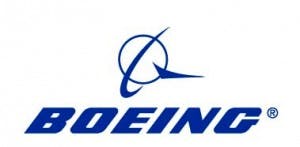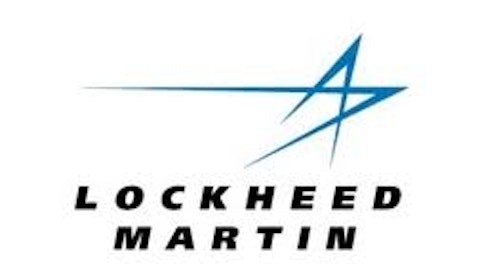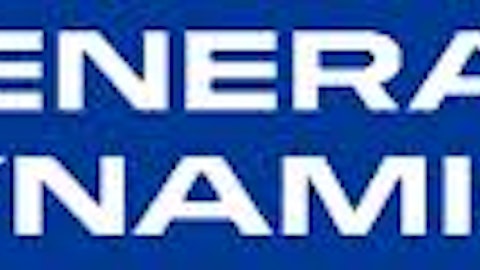
The defense segment will continue to see revenue declines due to decreased military spend in the US and Europe. On the other hand, the commercial-aircraft segment will observe an upside due to increased demand for new aircraft, production rates and the introduction of next-generation aircraft.
According to the International Air Transport Association (IATA), global air traffic will increase by 800 million passengers in 2016 — taking the total to 3.6 billion passengers from 2.8 billion in 2011. In contrast, the Air Fleet Recycling Association (AFRA) has revealed that 12,000 aircraft will retire in the next 18 years.
The increase in demand for the new aircraft in the emerging markets and the replacement of older aircraft in the mature markets will result in rising demand for new aircraft.
I have picked two aircraft manufacturers from A&D industry, The Boeing Company (NYSE:BA) and Lockheed Martin Corporation (NYSE:LMT), that are likely to benefit in such a scenario. Let’s discuss them in detail.
Production and order growth
The Boeing Company (NYSE:BA) is increasing its production to 38 airplanes per month and is set to bolster it further it to 42 planes per month by first half of 2014. The company is experiencing increased demand in its 737, 737 Max and 777X models.
Last month, it received an order for 175 The Boeing Company (NYSE:BA) 737-800 jets from Ryanair Holdings plc (ADR) (NASDAQ:RYAAY) worth $15.6 billion. With this order, Ryanair Holdings plc (ADR) (NASDAQ:RYAAY) has kept up its commitment to use only Boeing aircraft, and its management intends to do so in the future. This deal will result in expansion of both the Ryanair Holdings plc (ADR) (NASDAQ:RYAAY) fleet by 30% to more than 400 planes and the passenger capacity by 100 million passengers per year by 2018.
These aircraft are considered fuel efficient, which will help Ryanair to continue with its price advantage over its other European peers. Additionally, Ryanair is also considering providing an order for the 737 Max planes, which are even more fuel efficient.
Growth track
These orders place Ryanair on the growth track in times when its competitors are reducing their operations. On the other side of the coin, these orders are of high value and are very important for Boeing, as they will help it to fill more assembly lines as 737 Max production starts.
The 737 Max is The Boeing Company (NYSE:BA)’s fuel-efficient aircraft, which is currently under development. This model has so far set a record in terms of getting the highest number of pre-launch orders. The tallies were orders for 914 aircraft in 2012, and additional orders for 121 aircraft in January and February. This continuous increase in the orders and resulting production activity will help in driving the company’s revenue upward in 2013.
The Boeing Company (NYSE:BA) has been waiting for a response on production of the 777X aircraft from its board of directors, which was scheduled for April. If production gets the green light, I think it would be a landmark move for the company and will place it on track for long-term growth. Once approved, it’s expected that this aircraft could gather orders for 200 to 300 units at first take.
In a recent development, the company got approval from the FAA for its new lithium-ion battery. Previously, the FAA banned its 787 Dreamliner aircraft following incidents of the battery overheating and burning. This ends a three-month ban on flying these aircraft, which was becoming a major threat for Boeing.
Lockheed Martin
Lockheed Martin Corporation (NYSE:LMT) got a $101 million contract from the U.S. Department of Defense for the maintenance of Aegis Weapon and Combat Systems for destroyers. Lockheed Martin Corporation (NYSE:LMT) has been the sole source for this program since 1969, but this time it won the contract amid bids from other players, including Raytheon and Boeing. Raytheon previously built radar systems for Zumwalt Class Destroyers and Boeing is the lead contractor for the Ground Based Missile Defense (GMD) System.
However, this contract was awarded to Lockheed Martin Corporation (NYSE:LMT) because of its history with this department. Though this contract is for a relatively smaller amount, it is estimated that this overall program will account for $500 million of the company’s annual sales.
Lockheed has tied up with Boeing to sell the US Government medium-and-heavy lift rockets for the next five years. The deal is expected to be finalized in the second quarter and remains under negotiation. The terms and value have not been disclosed by both the companies yet, but if it gets through this will present a healthy opportunity to both the companies in the coming years.
With these deals/orders in Lockheed’s bag, the stock looks in a good position to generate the industry’s highest return, as it did in 2012 with 34.9%. Also, the company had an order backlog of $82.3 billion by the end of 2012.
One point of concern for Lockheed Martin Corporation (NYSE:LMT) is the US government’s decision surrounding sequestrations in which the government will reduce its defense budget by $500 billion in the next 10 years. As Lockheed Martin gets 80% of its revenue from the government, this will hurt its future performance. However this downside will have limited effect, as the F-35 orders will be reduced by only one or two aircraft in a year.
Conclusion
Even though there is a lot of talk about the proposed decrease in the US defense budget, I see this to have a minimal effect on the new aircraft orders for companies like Lockheed Martin Corporation (NYSE:LMT). It will continue to get its shareholders’ trust with its relatively strong position in the defense industry, clearly depicted from its deal with Boeing and the new contracts with Department of Defense.
On the other hand, The Boeing Company (NYSE:BA) will keep its growth momentum with the increasing demand of 737, 737 Max and 777X commercial aircraft. The increasing demand and the improving line of production will help the company to generate higher revenue.
Looking at the above long-term growth fundamentals, I will recommend buying both of these aerospace stocks for long-term growth.
The article 2 Lucrative Buys in the Aerospace Industry originally appeared on Fool.com and is written by Madhu Dube.
Copyright © 1995 – 2013 The Motley Fool, LLC. All rights reserved. The Motley Fool has a disclosure policy.

